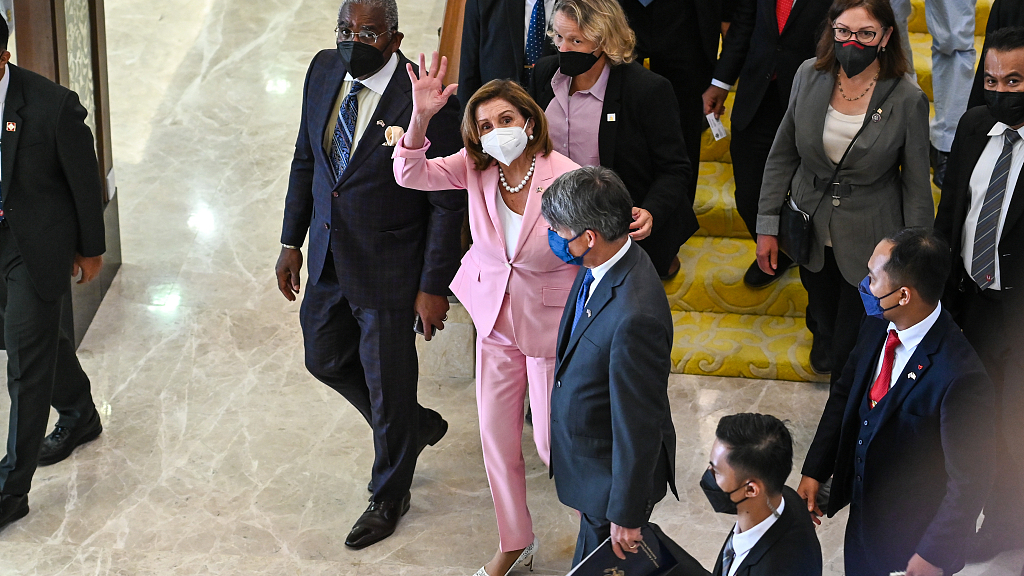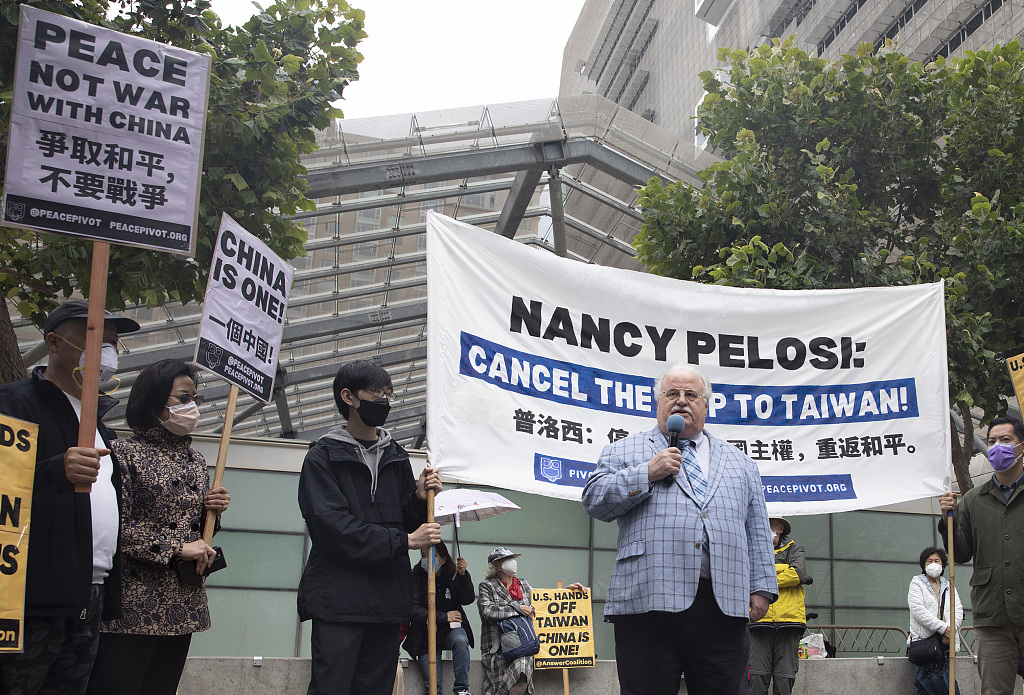
U.S. House Speaker Nancy Pelosi waves to media as she tours the parliament house in Kuala Lumpur, Malaysia, August 2, 2022. /VCG
U.S. House Speaker Nancy Pelosi waves to media as she tours the parliament house in Kuala Lumpur, Malaysia, August 2, 2022. /VCG
Editor's note: William Jones is a former White House correspondent for Executive Intelligence Review and a non-resident fellow of the Chongyang Institute for Financial Studies, Renmin University of China. The article reflects the author's opinions, and not necessarily those of CGTN.
Nancy Pelosi and her delegation's visit to China's Taiwan region on August 2 brings up the story of the last king of France, Louis XV. In the midst of the great upheaval known as the French Revolution, when the masses were outside the gates of the palace in Paris clamoring for bread, the king, queen and other aristocrats continued with their extravagant lifestyle and he supposedly said, "Apres moi, le deluge" – "After me, the deluge." It meant not worrying about what was happening since the "deluge" would come only after he was gone.
And the deluge did come and in his lifetime, at the cost of many men and women's lives. It could have gone differently, but for the egoistic aims of the French monarchy.
"California queen" U.S. House Speaker Nancy Pelosi, in her last gasp as a politician, decided to do her version of Louis XV by visiting Taiwan. There were clear warnings from the Chinese government that such a trip would be considered a breach of the commitments made by the United States to regard Taiwan as an integral part of China, commitments that were the preconditions for China to establish relations with the United States.
The warnings, however, were treated seriously by other U.S. officials, with President Joe Biden publicly saying, "The military thinks it's not a good idea [to visit Taiwan] right now." But they were all ignored by Pelosi, intent on having her swansong. There are many instances of over-ripe egos ignoring reality for self-aggrandizement, leading to suffering and misery for the people.
The economic and social situation of the United States is in great tumult. The relationship with China is absolutely essential for the economic well-being of Americans. Some people feel that they can rearrange world supply chains to reduce U.S. dependence on China. But such measures, which have already led to rampant inflation unseen for decades, will also lead to a deterioration in the standard of living for all Americans.
"No man is an island entire of itself," English poet John Donne said in his famous sermon. The same is true for countries. President Xi Jinping underlined the China-U.S. relationship in his recent telephone call with President Biden, who seemed to accept it generally, reiterating the U.S. commitment to its "one-China" policy and opposition to "Taiwan independence." But the question remains: Did he urge Pelosi strongly enough not to make a trip to Taiwan? For all intents and purposes, it seems that was not the case.

People gather in front of the San Francisco Federal Building in California, the United States, to protest against Speaker Nancy Pelosi's visit to China's Taiwan region, August 1, 2022. /VCG
People gather in front of the San Francisco Federal Building in California, the United States, to protest against Speaker Nancy Pelosi's visit to China's Taiwan region, August 1, 2022. /VCG
Now we must face "the deluge." Chinese People's Liberation Army forces have begun conducting military exercises and training activities, including live-fire drills, around Taiwan. The next several days will reveal more measures that the Chinese government will take in response to the visit. Already all the major Chinese governmental and legislative institutions have made clear their condemnation.
The U.S. is trying its best to convince China that the Pelosi visit is not a "deal-breaker" with regard to U.S. commitments in the three joint communiques. This will be something of a hard-sell since the Chinese are looking primarily at the deeds and not the words of the U.S. in this respect.
The Asia-Pacific scenario has changed radically due to the shortsighted zeal of an overly ambitious politician. Can the U.S. government do anything to repair the damage? It certainly can but it might require a greater amount of political courage and wisdom than has hitherto been manifested by the octogenarian president. One can only hope that wiser heads in the American political establishment can bring to bear their influence on a situation that is in danger of spinning out of control.
(If you want to contribute and have specific expertise, please contact us at opinions@cgtn.com. Follow @thouse_opinions on Twitter to discover the latest commentaries in the CGTN Opinion Section.)

